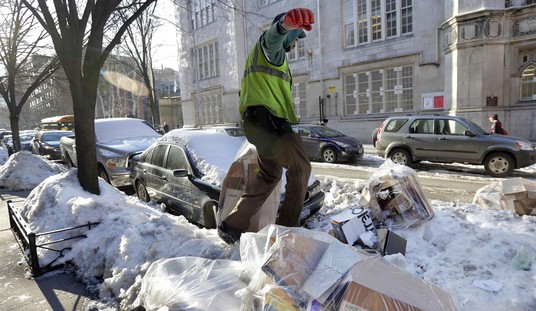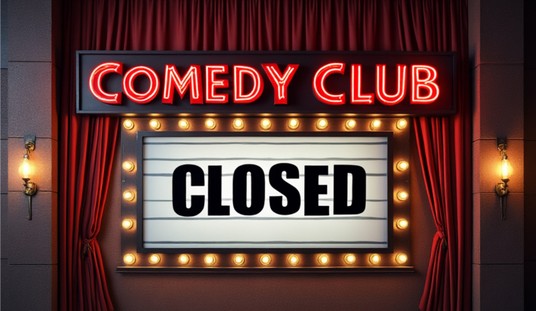It is as though we are wandering in the ruins of an ancient morality which we still reflexively accept but no longer fully understand. — Michael Bonner, In Defense of Civilization
In the second volume of Democracy in America, Alexis de Tocqueville predicted that the working class and racial minorities would agitate for ever greater equality with every succeeding increment of social and economic advancement—what he called “the revolution of rising expectations.” This has come to be known as the Tocqueville Effect or Tocqueville Paradox, the phenomenon in which, as life improves for the masses, social frustration keeps pace or even escalates. When anticipated improvements fail to materialize in timely fashion, or when major improvements reveal smaller lacunae, discontent will surge and even revolutionary sentiment may arise.
In other words, as the flux of social change and gradual upward mobility enable the laboring classes to acquire the goods, services, and conveniences previously unattainable, the gap between themselves and the more affluent or fortunate will be seen as a form of oppression and unfairness, and will persist in inflaming the socially destabilizing vices of envy and resentment. In a Tocquevillian nutshell, people tend to grow increasingly restless and disaffected as their condition improves.
The socialist solution to so ostensibly egregious a socioeconomic disparity is, put simply, downward mobility, the leveling of perceived inequalities. The result is either the creeping uniformity and monotony of the welfare state or the violent convulsions of revolutionary communism, perpetuating, as Winston Churchill said, “the equal sharing of misery” (except, of course, for the insulated elite). The Tocqueville Effect can be laid to rest by ensuring that vertical expectations cease to rise and that horizontal equality prevails.
This is not to suggest that the concept of equality is anathema or socially contra-indicated, but only that it must be properly understood. Equality before the law is the lynchpin of a democratic polity, and equality of opportunity (rather than equality of predetermined outcome) is the sine qua non of a healthy and economically viable society. Once these prerequisites are entrenched, the rest is up to the aptitudes, emotional gradients, and personal goals of the individual within the purview of tradition and common law.
Luck obviously plays a role as well, since not everyone begins with the same advantages of status, class, and a nurturing family life, nor does everyone profit equally from the inheritance of intrinsic physical and mental traits and capacities. Such variations are implicit in the human condition, which no political fiat or legislative instrument can change. Enforced equality in defiance of abilities or idiosyncratic differences is a recipe for social inertia, spiritual apathy, and intellectual tawdriness—the tainted fruit of the dismal and misnamed “social justice” movement.
A blanket program of equality—aka equity—in all the realms of life, work, and remuneration is inevitably destined to fail. In provoking an attitude of discontent and endemic jealousy of those who have, in one way or another, been legitimately favored through individual initiative, a society works against its own best interests. Even if an enlightened state has provided for skill, virtuosity, drive, and competence to be rewarded, and even though First World grudge-bearers may enjoy the necessities and comforts that the truly dispossessed in the Third World sadly lack, the socialist project for omnibus equality at the expense of individual freedom will find us, as Friedrich Hayek memorably put it, on “the road to serfdom.” A central authority that controls our position in the social hierarchy irrespective of individual qualities, inclinations, or desires leads to a pervasive state of languor and indolence, and renders it “impossible to be just.” Hayek notes that “Independence of mind or strength of character is rarely found among those who cannot be confident that they will make their way by their own effort.”
The work of Vilfredo Pareto, in such books as The Transformation of Democracy and especially his Manual of Political Economy, is pertinent in this connection. Pareto developed what is now called the Pareto Principle, or the “law of the vital few,” which specifies a scalene relationship between causes and effects in human endeavor, for example, in the accumulation of wealth, the incidence of discoveries and inventions, the accession to corporate authority, the acquisition of honors, and so on. The principle states that roughly 80% of significant consequences come from 20% of sources, a ratio that is known in the finance sector as “factor sparsity.” In ruling against the “vital few,” against those who propel the nation forward through their individual faculties of will, talent, diligence, and personal initiative, a society ensures its eventual stagnation.
The truth is that we are not all equal, nor should we be if we want to escape the hell of ennui, spite, indigence, moral torpor, and intellectual mediocrity that accompanies the socialist state. Moreover, those who have contributed positively to the advantage of their fellows on any level of enterprise deserve the plaudits and emoluments they will have earned. Socialism is at root the politics of resentment against human variance, personal independence, and individual achievement, targeting the gifts and facilities of society’s benefactors. In this sense, the mantra of “inclusion” so beloved of left-wing progressives is really a form of exclusion directed at those whose native endowment and personal effort are the engine of human advancement. This is the real paradox at the heart of human betterment. In Pareto’s terms, the 20 percent make life better for the 80 percent, but the 80 percent in erasing the 20 percent make life 100 percent worse for everyone.
It should be said at this point that the “vital few” need not refer only to the exceptional figures in the “higher” or more prestigious disciplines, but also to the honest tradesmen and public workers who maintain a nation’s infrastructure and serve its basic needs—those, as the saying has it, who pull the wagon others ride in. Regarded more comprehensively, the Pareto Principle continues to hold across the board.
This is another way of saying that the politics of social equity, which fragments people and groups into lumpen racial or sexual identities, and affirmative action, which annuls distinctions of merit, are invasive and reductive policies, elevating the category over the person. The quest for the equal distribution of goods, professional placement, and social preferment, based on the desiderata of identity politics and the incitements of the grievance industry, has an inescapable flattening effect on both cultural and economic life. The inept will in consequence often replace the adept in the various walks of life and work. This does not mean that the stigma of greed or the vice of discrimination will somehow cease—certainly not this side of heaven—but it does not change the fact that freedom is also the freedom to excel and to be productive without political hindrance or ideological obstacles. In Milton Friedman’s words, “Freedom requires individuals to be free to use their own resources in their own way”—as does prosperity.
The Tocqueville Effect is innate to human psychology—as Tocqueville said in this context, “I marvel at the imbecility of human reason.” But the socialist response is immeasurably worse. Ultimately, sameness is the adversary of beneficial progress, no less than the effacing or suppression of the talented, the ambitious, the self-reliant, and the industrious is the death knell of the flourishing society. Once difference is reduced to a lowest common denominator on the grounds of eliminating privilege and private interests, once the unique individual is subsumed in the featureless collective, quality inevitably leeches out of equality, as does justice out of “social justice,” a hard lesson the egalitarian sensibility appears utterly incapable of learning.










Join the conversation as a VIP Member